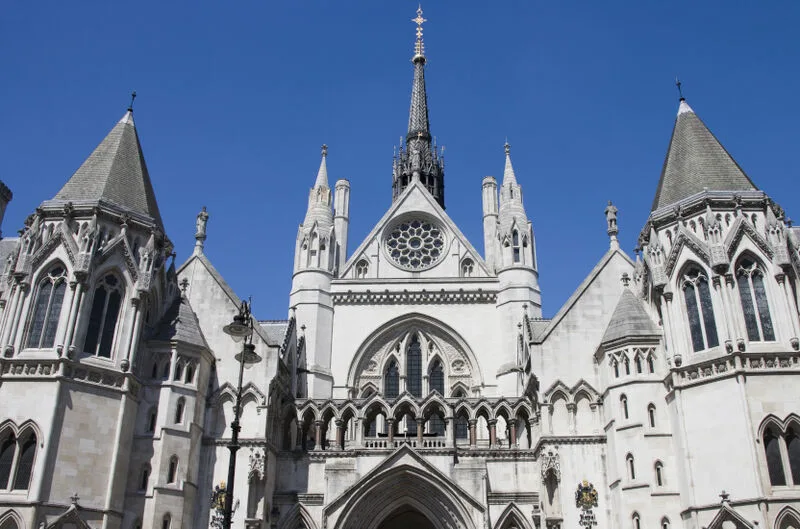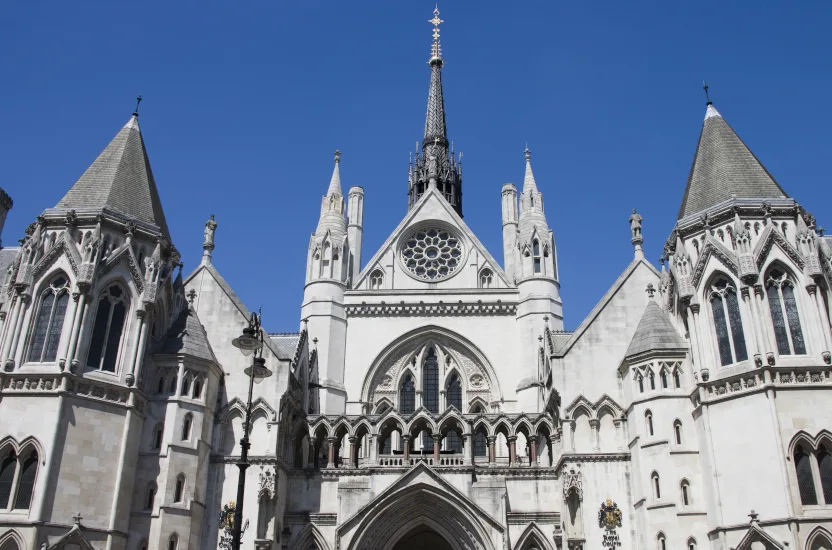To read the full article in Family Law Week, click here: https://www.familylawweek.co.uk/articles/transgender-rights-and-the-law-an-essential-guide-for-practitioners/
The articles have been linked below with kind permission.
Transgender rights in England and Wales have attracted significant debate in recent years, notably following the publication of the Cass Review in April 2024 which led to a significant change to NHS England’s clinical policy. In a further key development, the UK Supreme Court unanimously ruled that the legal definition of a woman should be based on biological sex in the landmark case of For Women Scotland Ltd v The Scottish Ministers [2025] UKSC 16 on 16 April 2025.
It is no exaggeration to state that the Cass Review[1] has fundamentally changed the legal landscape in this area (so pre-Cass cases must be read with that in mind). It is not yet clear how the law will develop and judicial decisions remain highly fact-specific. The consequences of the recent Supreme Court decision remain to be seen but will no doubt be far-reaching. Sarah Williams, Partner and Claire Chesser, Trainee at Payne Hicks Beach LLP explore the ever-evolving landscape in this area.
Impact of the Cass Review
The aim of Dr Hilary Cass’s report was to make recommendations that ensure that children and young people who are questioning their gender identity or experiencing gender dysphoria receive a high standard of care across the board. It was commissioned by NHS England in the context of the number of children and young people presenting to the UK NHS Gender Identity Service increasing year on year since 2009, with an exponential rise in 2014. Dr Cass described how, in 2011, the UK had trialled the use of puberty blockers and, from 2014, puberty blockers moved from a research-only protocol to being available in routine clinical practice. It was Dr Cass’s recommendation that puberty blockers should only be prescribed following a multi-disciplinary assessment (including screening for neurodevelopmental conditions such as autism and a mental health assessment).
Ahead of the publication of the Cass Review, NHS England in effect blocked the use of puberty blockers in the UK, stipulating that they may only be used in the context of a clinical trial due to a lack of evidence to support their safety or clinical effectiveness. Puberty blockers for the treatment of gender dysphoria in under 18s were banned temporarily in May 2024, immediately following the Cass Review, and legislation was updated in December 2024 to make the ban indefinite.
The Cass Review led to the closure of the flagship NHS Gender Identity Clinic at the Tavistock and Portman NHS Foundation Trust. Eight new regional centres are in the process of being rolled out in place of the Tavistock with a focus on a more holistic approach, with primary intervention being in the form of psychological support as opposed to medication.
Consent: the law
The foundational principle in this area of law is that of consent. The Mental Capacity Act 2005 presumes that a patient over the age of 16 is able to make their own decisions about their medical treatment. Section 8 of the Family Law Reform Act 1969 sets out that the consent of a person aged 16 is as effective as the consent of a person aged 18.
A minor under the age of 16 may be competent to consent to medical treatment if they are found to be “Gillick competent”. Gillick v West Norfolk and Wisbech Area Health Authority [1986] AC 112 sets out that a child achieves capacity to consent if and when they achieve sufficient understanding and intelligence to enable them to understand fully what is proposed; until this point the parental right to make decisions continues.
In respect of the provision of NHS treatment for those under 16, following the Cass Review, the consent of a minor will be subject to national policy guidelines. Recent case law provides guidance on how the court has treated such issues in the past, and presents some common themes. As above, the future in this area remains unclear and the below analysis should be read as useful background rather than definitive law.
Pre-Cass Review: could informed consent be given by children and young people suffering from gender dysphoria?
The issue at the heart of Bell v Tavistock and Other [2020] EWHC 3274 (Admin) was whether informed consent in the legal context could be given by children and young people suffering from gender dysphoria.
The claimant was prescribed hormones to block the progression of puberty aged 16 and went on to commence surgical treatment to transition from female to male. She later regretted her course of action and terminated the treatment. She was left without breasts, a deep voice, facial hair and affected sexual function. She claimed that the Gender Identity Development Service (GIDS) should have challenged her desire to transition to male more rigorously.
In the first instance, the Divisional Court made a declaration as to the “relevant” information that a child under 16 would have to understand in order to consent to puberty blockers. Clinicians may well consider that it is not appropriate to treat 14–15 year olds without the involvement of the court. For 16–17 year olds, an application to the court would be appropriate if any doubt about the long term interests of the patient.
GIDS successfully appealed. On appeal, the court determined that it was for physicians not judges to exercise their judgment in respect of medical treatment, acknowledging how important it was for the patient’s consent to be obtained properly in line with the particular needs of the individual seeking treatment.
Pre-Cass Review: the role of parental consent
In AB v CD and others [2021] EWHC 741, XY, born male and aged 15 at the time of the judgment, was seen in the GIDS clinic aged 13 by Professor Butler who declared them “competent to consent”. Whilst XY’s parents also signed the relevant consent forms, Professor Butler proceeded on the basis of XY providing valid consent. Concerned that treatment would be interrupted or halted, the parents brought an application to court, seeking a declaration that they could consent to the administration of puberty blockers on behalf of XY.
It was ruled that the parents could consent to complex medical interventions on behalf of their child. The parents’ rights to consent on behalf of the child continues even when the child is “Gillick competent”, save where the parents are attempting to override the decision of the child. Therefore, physicians could lawfully advise and treat the child without the parents’ consent (albeit here the parents did consent). However, where a child is not “Gillick competent”, the parents continue to have parental responsibility to give valid consent. Puberty blocking treatment does not fall into a special category of medical treatment for children that requires court approval. However, in certain circumstances (for example, if parents feel pressured by their child to consent), the case should be referred to court.
Pre-Cass Review: transgender surgery abroad
In Re R (Inherent Jurisdiction: Transgender Surgery Abroad) [2023] EWHC 347 (Fam), S (aged 16 at the time of the judgment) was born female but had lived as male for some years. By an application made on 20 July 2022, a local authority applied for leave to invoke the inherent jurisdiction of the High Court in order to prevent S (then aged 15) from travelling to another country to undergo a double mastectomy. Judge A had granted permission to the local authority to invoke the inherent jurisdiction. On the first morning of the final hearing, the local authority applied to withdraw its application on the basis that it could not discharge the burden of proving its case ((i) that the procedure was prohibited in the other country and (ii) that the consents given by S and his parents were inadequate.
The court found that, in order to trigger access to the inherent jurisdiction, a local authority must give grounds for reasonable belief that, if that access is denied, there are reasonable grounds for believing that the child is likely to suffer significant harm. The local authority had withdrawn its application as, as more information had come to light, this threshold could not be met.
Sir Andrew MacFarlane emphasised the need to continue to have regard to whether there is a likelihood of significant harm must continue throughout proceedings and be a requisite factor in determining whether to exercise jurisdiction. Jurisdiction should only be exercised in favour of imposing a restriction on an action that would otherwise be permitted where a likelihood of significant harm to the child is proved. Although issues of legality and consent may be relevant to the court’s ultimate decision, the child’s welfare remains the paramount consideration. A comprehensive and holistic review of all relevant factors is required before determining which outcome best meets the child’s global welfare needs. In undertaking this task, reference should be made to the welfare checklist. From the start of the case and throughout, the local authority’s approach had lacked the necessary focus on the twin lodestars of “significant harm” and “welfare”.
The legal landscape post-Cass
In O v P & Anor [2024] EWHC 1077 (Fam), Q was born female but identified as male (he was aged 16 at the time of the judgment). Q had informed his (divorced) parents that he identified in male in 2020. Q’s father accepted this but his mother did not. The mother sought a declaration that the prescribing of puberty blockers by a private provider must be subject to the oversight of the court. Her position was that there was a legitimate purpose to adjourn proceedings because the legal and regulatory landscape for gender dysphoria treatment was changing rapidly and the Cass Review had been published a week prior to the hearing. The father and Q invited the court to dismiss proceedings on the basis that Q should be assessed and left to make his own decisions regarding treatment.
Judd J found that, pursuant to section 8 Family Law Act 1969, Q was entitled to consent to his own treatment whether or not his parents agreed. Not all provisions in the Cass Review were applicable when considering private treatment. The findings of the Cass Review did not oblige Judd J to depart from the landmark decisions in Bell v Tavistock and AB v CD. The parents had agreed that it was appropriate for Q to undergo a 6-month assessment by private provider Gender Plus.
The mother appealed the decision. The Court of Appeal distinguished between three possible issues with which the court had to deal. First, was Q competent to consent to or refuse medical treatment? Secondly, does a child have mental capacity to consent to or refuse medical treatment? Thirdly, what is in the child’s best interests? This issue arises once the presumption as to the competence of a child over 16 to consent or refuse medical treatment is engaged (section 8 Family Law Reform Act 1969). Despite section 8, the court still retains the right to override consent given or withheld by a child over 16 on welfare or best interest grounds in very limited and well-defined circumstances. The Court of Appeal were concerned with the third issue – should the court override any consent given by a young person for cross-sex hormone treatment? It was accepted that questions as to Q’s mental capacity were unlikely to arise.
It was found that Judd J was wrong to refuse to adjourn the mother’s application. Two factors made it appropriate for the court to keep proceedings alive at least until the assessment by the private provider had been undertaken. The private provider could not satisfy all the recommendations made by the Cass Review (in particular the need for the case to be discussed by a national multi-disciplinary team). The Cass Review had not yet been implemented by the government and this might affect where the young person’s best interests lay. Judd J did not place enough weight on the rapidly changing regulatory environment, the possibility of future disagreement between the parents and the difference between services offered by private providers and the NHS.
In EF v LM (Re J) [2024] EWHC 922 (Fam), J, aged 16.5 years, was born female but regarded himself as male. J began a course of cross-hormone treatment in January 2023 and was to embark on three-monthly testosterone injections.
The issue before the court was J’s capacity to consent to receiving hormone treatment and whether the court should, in any event, exercise its powers under the inherent jurisdiction and/or Children Act 1989 to prevent further hormone treatment. Both J and his parents had concern over the provider Gender GP’s approach, with J only having had one direct consultation with an unregistered counsellor before receiving a private prescription for a dangerously high dose of testosterone. J’s father was opposed to any young person under 18 being prescribed with puberty blockers but accepted that J would undergo an assessment by a new London-based private clinic as the next step.
In his judgment, Sir Andrew MacFarlane emphasised that the law in this area was still very much in development and, in the absence of intervention by Parliament, the court should take care to develop common law incrementally, as required, on a case by case basis, and not be drawn into academic discourse.
Supreme Court decision: definition of a woman
In For Women Scotland Ltd v The Scottish Ministers [2025] UKSC 16, the Supreme Court were concerned with establishing the correct interpretation of the Equality Act 2010, which seeks to reduce inequality and to protect people with protected characteristics (such as sex or gender reassignment) against discrimination. Feminist campaign group For Women Scotland had brought a case against the Scottish government arguing that sex-based protection should only apply to people born female. The Scottish government’s position was that transgender people with a gender recognition certificate are entitled to the same sex-based protections as biological women.
The Gender Recognition Act 2004 enables transgender adults to receive a gender recognition certificate if they provide evidence that they have or have had gender dysphoria, have lived as their acquired gender for two years and intend to continue to do so until death. Those granted a full gender recognition certificate are, from the date of issue, considered in law to be of their acquired gender.
The central question facing the Supreme Court was whether the Equality Act 2010 treats a transgender woman with a gender recognition certificate as a woman for all purposes within the scope of its provisions, or whether “woman” and “sex” refer to a biological woman and biological sex for the purposes of the Act.
Lord Hodge told the court that “the unanimous decision of this court is that the terms woman and sex in the Equality Act 2010 refer to a biological woman and biological sex”; any other interpretation would render the Equality Act 2010 incoherent and impracticable to operate. He cautioned that this should not be seen as a triumph of one group over another and that the Equality Act 2010 afforded transgender people protection against discrimination through the protected characteristic of gender reassignment.
Following the judgment, a UK government spokesperson said that the ruling would bring “clarity and confidence for women and service providers such as hospitals, refuges and sports clubs”. The full political, cultural and social consequences of the judgment will unfold over the coming months and years.
Conclusion
Sir Andrew MacFarlane’s comments in EF v LM encapsulate the current uncertainty in this area and the need for each case to be considered on its facts. Notwithstanding the clarity provided by the Cass Review and the recent Supreme Court decision, it is anticipated that this area of law will remain surrounded by controversy and attract the attention of both the courts and the media for years to come. At the time of writing (April 2025), Keira Bell (of Bell v Tavistock as described above), along with two other unnamed claimants, has applied for a judicial review[2] of the government’s decision to ban puberty blockers on the grounds that banning puberty blockers whilst allowing cross-sex hormone treatment is “irrational” and “unlawful”, and the outcome of that remains to be seen. What is clear is that, in cases involving children, considerations in respect of law and policy must start with the findings of the Cass Review combined with consideration of the welfare of the subject child.
[1] Cass, H. (2024). Independent review of gender identity services for children and young people: Final report. https://webarchive.nationalarchives.gov.uk/ukgwa/20250310143933/https://cass.independent-review.uk/home/publications/final-report/
[2] https://www.thetimes.com/uk/law/article/failure-to-ban-cross-sex-hormone-treatment-must-be-reviewed-200vd8hg9
For further information, please contact Sarah Williams, Partner in the Family Department or, alternatively, telephone on 020 7465 4300
To learn more about divorce and separation, you can download a free copy of our Essential Guide to Divorce and Family Law here.
To learn more about Prenups and Postnups, you can download a free copy of our Essential Guide to Prenuptial and Postnuptial Agreements here.
To learn more about Modern Family Law visit our dedicated webpage and download a free copy of our Essential Guide to Modern Family here.
To access our dedicated webpage with free Essential Resources for Supporting and Protecting Vulnerable Clients click here.








